Ford Tourneo Connect VS Nissan Leaf – Specs, Efficiency & Price Comparison
Which model is the better choice – the Ford Tourneo Connect or the Nissan Leaf? We compare performance (150 HP vs 217 HP), boot capacity (1720 L vs 394 L), efficiency (0.50 L vs 16.70 kWh), and of course, the price (26900 £ vs 30800 £).
Find out now which car fits your needs better!
The Ford Tourneo Connect (High Roof Estate) is powered by a Petrol, Diesel or Plugin Hybrid engine and comes with a Automatic or Manuel transmission. In comparison, the Nissan Leaf (Hatchback) features a Electric engine and a Automatic gearbox.
When it comes to boot capacity, the Ford Tourneo Connect offers 1720 L, while the Nissan Leaf provides 394 L – depending on what matters most to you. If you’re looking for more power, you’ll need to decide whether the 150 HP of the Ford Tourneo Connect or the 217 HP of the Nissan Leaf suits your needs better.
There are also differences in efficiency: 0.50 L vs 16.70 kWh. In terms of price, the Ford Tourneo Connect starts at 26900 £, while the Nissan Leaf is available from 30800 £.
Compare all the key specs now and find out which model fits your lifestyle best!
Ford Tourneo Connect
The Ford Tourneo Connect represents a versatile option in the people carrier segment, offering a blend of functionality and comfort for family or business use. Its design combines modern aesthetics with the practicality needed for daily operations, making it an appealing choice for those seeking a reliable and adaptable vehicle. Inside, the Tourneo Connect provides a spacious and well-thought-out interior, ensuring a comfortable driving experience for both driver and passengers.
details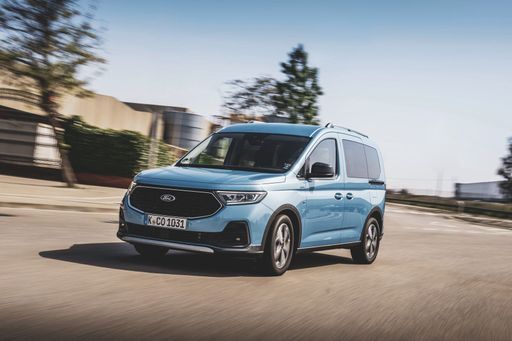 @ tourneoconnect.fordpresskits.com
@ tourneoconnect.fordpresskits.com
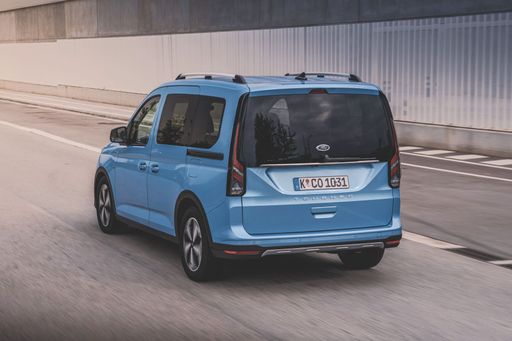 @ tourneoconnect.fordpresskits.com
@ tourneoconnect.fordpresskits.com
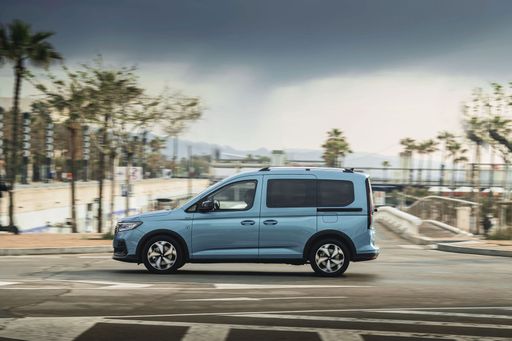 @ tourneoconnect.fordpresskits.com
@ tourneoconnect.fordpresskits.com
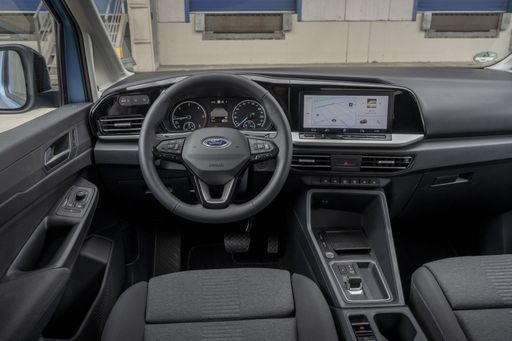 @ tourneoconnect.fordpresskits.com
@ tourneoconnect.fordpresskits.com
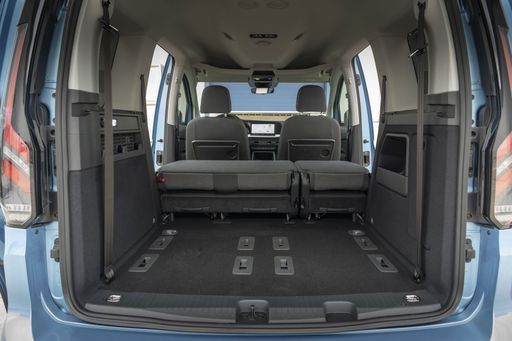 @ tourneoconnect.fordpresskits.com
@ tourneoconnect.fordpresskits.com
Nissan Leaf
The Nissan Leaf stands out as a pioneering model in the realm of electric vehicles, known for its impressive blend of practicality and eco-friendliness. It offers a smooth and quiet driving experience, making it an ideal choice for city commuting and longer journeys alike. The interior design is both comfortable and intuitive, providing drivers with a sense of modernity and ease of use.
details @ germany.nissannews.com
@ germany.nissannews.com
 @ germany.nissannews.com
@ germany.nissannews.com
 @ germany.nissannews.com
@ germany.nissannews.com
 @ germany.nissannews.com
@ germany.nissannews.com

|

|
|
|
|
Costs and Consumption |
|
|---|---|
|
Price
26900 - 41900 £
|
Price
30800 - 37200 £
|
|
Consumption L/100km
0.5 - 7 L
|
Consumption L/100km
-
|
|
Consumption kWh/100km
-
|
Consumption kWh/100km
16.7 - 17.8 kWh
|
|
Electric Range
-
|
Electric Range
270 - 385 km
|
|
Battery Capacity
19.70 kWh
|
Battery Capacity
39 - 59 kWh
|
|
co2
10 - 158 g/km
|
co2
0 g/km
|
|
Fuel tank capacity
32 - 50 L
|
Fuel tank capacity
-
|
Dimensions and Body |
|
|---|---|
|
Body Type
High Roof Estate
|
Body Type
Hatchback
|
|
Seats
5
|
Seats
5
|
|
Doors
5
|
Doors
5
|
|
Curb weight
1542 - 1709 kg
|
Curb weight
1580 - 1756 kg
|
|
Trunk capacity
1213 - 1720 L
|
Trunk capacity
385 - 394 L
|
|
Length
4500 - 4868 mm
|
Length
4490 mm
|
|
Width
1855 mm
|
Width
1788 mm
|
|
Height
1833 mm
|
Height
1540 - 1545 mm
|
|
Payload
578 - 618 kg
|
Payload
384 - 415 kg
|
Engine and Performance |
|
|---|---|
|
Engine Type
Petrol, Diesel, Plugin Hybrid
|
Engine Type
Electric
|
|
Transmission
Automatic, Manuel
|
Transmission
Automatic
|
|
Transmission Detail
Dual-Clutch Automatic, Manual Gearbox
|
Transmission Detail
Reduction Gearbox
|
|
Drive Type
Front-Wheel Drive
|
Drive Type
Front-Wheel Drive
|
|
Power HP
102 - 150 HP
|
Power HP
150 - 217 HP
|
|
Acceleration 0-100km/h
11.4 - 13.5 s
|
Acceleration 0-100km/h
6.9 - 7.9 s
|
|
Max Speed
175 - 186 km/h
|
Max Speed
144 - 157 km/h
|
|
Torque
220 - 350 Nm
|
Torque
320 - 340 Nm
|
|
Number of Cylinders
4
|
Number of Cylinders
-
|
|
Power kW
75 - 110 kW
|
Power kW
110 - 160 kW
|
|
Engine capacity
1498 - 1968 cm3
|
Engine capacity
-
|
General |
|
|---|---|
|
Model Year
2024
|
Model Year
2019
|
|
CO2 Efficiency Class
F, E, B
|
CO2 Efficiency Class
A
|
|
Brand
Ford
|
Brand
Nissan
|
Ford Tourneo Connect
The Versatile Ford Tourneo Connect: Blending Utility with Modern Design
The Ford Tourneo Connect is a prime example of Ford's commitment to combining practicality with modern automotive technology. With its spacious interior, innovative features, and diverse engine selection, the Tourneo Connect is designed to meet the needs of families and businesses alike.
Engine Options and Performance
The Ford Tourneo Connect offers a range of efficient engines, including both petrol and diesel options. Buyers can choose between a 1.5 EcoBoost petrol engine or a 2.0 EcoBlue diesel engine, with power outputs ranging from 102 to 122 PS. The engines are coupled with either a manual or an advanced automatic transmission, providing flexibility and driving comfort. The diesel variants are particularly noteworthy for their fuel efficiency, clocking in as low as 5.4 L/100km, making long journeys more economical.
Spaciousness and Practicality
Designed as a high-roof MPV, the Tourneo Connect is well-suited for those who require ample space. It offers seating for up to five passengers and features a generous cargo capacity ranging from 1,213 to 1,720 litres, depending on seat configuration. For added practicality, the vehicle includes a range of adaptable storage solutions, making it easy to accommodate diverse passenger and cargo needs.
Innovative Technology
The Ford Tourneo Connect is not short on technology either. Its infotainment system is equipped with a user-friendly interface that supports smartphone integration, enhancing the driving experience with seamless navigation and media connectivity. Advanced driver assistance systems are also integrated, providing features such as adaptive cruise control and lane-keeping assistance, contributing to both safety and convenience.
Stylish Design and Comfort
While the Tourneo Connect is built for practicality, it doesn't compromise on style. The vehicle's sleek exterior lines and contemporary front grille design give it a sophisticated presence on the road. Inside, the choice between the Titanium Automatik, Trend, and Active Automatik trims offers a variety of comfort and convenience features, ensuring that every journey is as pleasurable as it is functional.
Impressive Specifications
Boasting a top speed of up to 186 km/h and a torque range of 220 to 320 Nm, the Ford Tourneo Connect strikes a fine balance between performance and economy. The vehicle is built to accommodate diverse driving needs, highlighted by its robust load capacity of up to 618 kg and a sizeable 50-litre fuel tank, which ensures fewer stops on long trips.
In conclusion, the Ford Tourneo Connect is a well-rounded vehicle that excels in delivering comfort, technology, and practicality. Whether for family outings or business use, it stands out as a reliable and versatile choice in its segment.
Nissan Leaf
Introduction to the Nissan Leaf: A Pioneer in Electric Mobility
The Nissan Leaf has established itself as a trailblazer in the realm of electric vehicles (EVs) since its launch. As we delve into its present-day iterations, the Leaf continues to soar in popularity due to remarkable advancements in technology and sustainability. Let's explore what makes the Nissan Leaf a standout in today's automotive market.
Power and Performance: Under the Hood of the Nissan Leaf
The Nissan Leaf boasts a power output ranging from 150 to 217 PS, depending on the battery option chosen. The vehicle's electric motor, a product of cutting-edge engineering, offers instant torque ranging from 320 to 340 Nm, resulting in impressive acceleration capabilities. The 0 to 100 km/h dash is achieved in as little as 6.9 seconds, showcasing its prowess in electric performance.
Battery Technology: Efficient Energy Management
When discussing the Nissan Leaf, battery technology is at the forefront. The available battery capacities range from 39 to 59 kWh, supporting an electric range between 270 to 385 km. This flexibility allows drivers to choose a model that best fits their driving habits, providing peace of mind for longer journeys without frequent recharging.
Sustainability: The Environmental Edge
One of the primary attractions of the Nissan Leaf is its commitment to sustainability. As an all-electric vehicle, it produces zero CO2 emissions, placing it in the top tier of the CO2-efficiency class with an 'A' rating. This clean energy approach contributes significantly to reducing environmental impact and supports Nissan's drive towards a greener future.
Design and Comfort: Aesthetic Appeal and Practicality
The Nissan Leaf is not just about efficiency; it's also designed for comfort and utility. With its sleek hatchback body and dimensions of 4490 mm in length, 1788 mm in width, and a height of up to 1545 mm, it offers ample interior space. The boot capacity ranges from 385 to 394 litres, providing sufficient storage for everyday needs. The model accommodates five passengers comfortably, ensuring a pleasant ride for everyone.
Innovations and Safety: Advanced Features for Peace of Mind
Nissan equips the Leaf with an array of intelligent features that enhance safety and convenience. The available equipment lines, including N-CONNECTA, Tekna, e+ N-CONNECTA, and e+ Tekna, offer varying levels of technology integration. ProPILOT Assist, e-Pedal, and a comprehensive suite of driver-assistance technology are just a few examples that highlight Nissan's commitment to innovation in the EV market.
Conclusion: The Nissan Leaf Continues to Lead
With prices ranging from €35,900 to €43,400, the Nissan Leaf remains an attractive choice for those looking to embrace electric mobility. It perfectly balances performance, design, and sustainability, making it a compelling choice in the competitive EV landscape. The Nissan Leaf not only represents the future of driving but also reinforces why it continues to be a leader in the electric vehicle community.
The prices and data displayed are estimates based on German list prices and may vary by country. This information is not legally binding.
